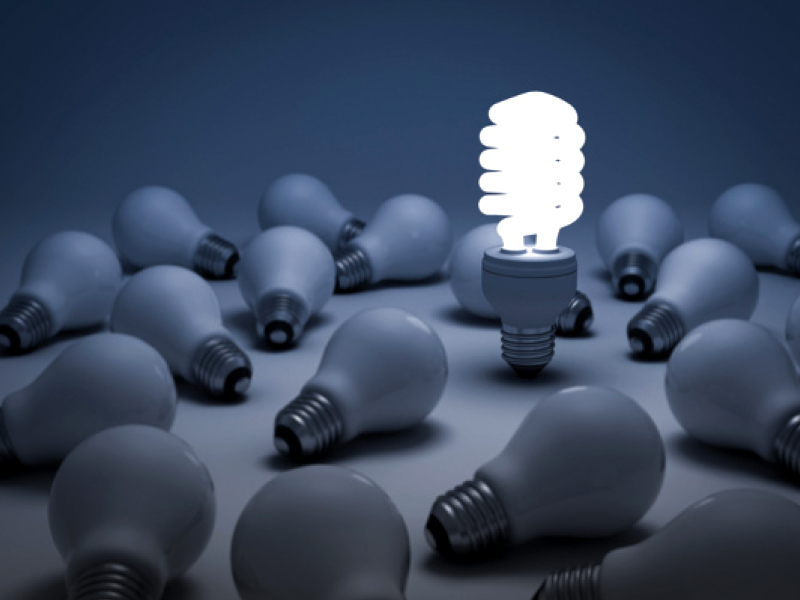
With the federal and Punjab governments showing interest in renewable forms of energy to cope with the country’s power crisis, some experts are suggesting a new push for energy efficiency and conservation measures.
Energy efficiency is a hard sell in Pakistan at times, mainly due to the high capital costs. People have to be convinced to spend more money upfront to buy products which would eventually lead to financial savings over a period of time. For example, a 6 Watt (W) LED bulb can provide light equivalent to a 50 W incandescent bulb but it also costs six to seven times more.
“Capital costs might be high for installing energy efficient systems,” said the United Nations Development Programme (UNDP) Assistant Country Director Dr Gul Najam Jamy. “But simple acts such as switching off extra lights can also help in energy conservation and improving efficiency.”

Even then, messages to conserve energy are often mocked by people. On Earth Hour — an annual global event where people switch off their lights for an hour voluntarily — in March, Pakistanis took to social media saying almost every other hour in Pakistan is Earth Hour because of load shedding.
However, Energy Conservation Fund Technical Manager Asad Mahmood at National Energy Conservation Centre (ENERCON), thinks awareness for saving energy can be created if there is government ownership of conservation efforts.
Mahmood, who is also Pakistan’s first Asian Productivity Organisation-certified trainer on Green Productivity and energy efficiency, has been working with the fund since 2011. Before and during his work at ECF, he said he has conducted more than 200 energy audits which led to savings of around 10 to 15 Megawatts of connected load.
It is savings like these that Enercon, which falls under the Ministry of Water and Power, had pursued during the previous government. But the Pakistan Energy Efficiency and Conservation Bill 2013, which would have mandated energy audits and related regulations, failed to make it into the law books.
“Studies have shown that many of our existing systems, especially in industry, are inefficient,” Jamy said. “They use a lot of electricity but their productivity is low.” Energy audits can help improve inefficient systems and bring down costs, Mahmood said.

Sources told The Express Tribune that the Ministry of Water and Power has shown interest in reviving an amended version of the bill. Still, it will be some time before the bill is presented in the assembly again.
But there are other encouraging signs. Energy provisions for the Building Code of Pakistan, which could lead to energy-efficient building design, are ready. Prepared by the Pakistan Engineering Council in collaboration with Enercon, a Statutory Regulatory Order for the provisions has been printed and the two organisations are expected to launch the code soon.
Reports suggest that the Punjab government is going to ask shopping malls and plazas to replace tube lights and incandescent bulbs with LED lights in its new energy policy.
Jamy said if the technologies are made affordable, everyone would be willing to use them. “Initiatives such as providing energy-efficient solutions and renewable energy systems on instalment may promote their use among people who cannot afford the initial cost.” But there are other challenges, too. “Most of the things you have to develop on your own because of few experts in energy efficiency.”
Jamy said it is important to make energy conservation a part of policy as of now. “The National Energy Policy was not approved so that has given more time to push for energy efficiency in the policy.” But there should be a heavy emphasis on energy efficiency with proper incentives, not just lip service.”
Published in The Express Tribune, August 15th, 2013.



































1713853507-0/MalalaHilary-(2)1713853507-0-270x192.webp)








COMMENTS
Comments are moderated and generally will be posted if they are on-topic and not abusive.
For more information, please see our Comments FAQ